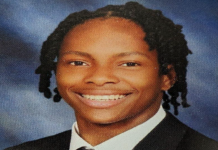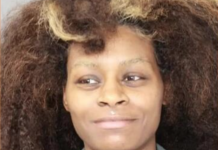Jersey City Councilman-at-Large Rolando Lavarro hosted a virtual panel with local medical experts who explained the nuances of the COVID-19 that streamed on Facebook Live last night.
By Daniel Ulloa/Hudson County View
“We can see the light at the end of the tunnel hopefully,” Lavarro said regarding the COVID-19 vaccination and the potential phrasing out of trends such as social distancing.
Dr. Sirhan Abdullah, who teaches at Hudson County Community College, explained that the Pfizer and Moderna vaccines have been deemed effective and have begun being distributed throughout the world.
“Vaccines work by training our immune system to fight pathogens,” Abdullah explained.
Pathogens consist of bacteria or viruses. They have to be introduced into the body to trigger an immune response. The immune system safely recognizes them and produces antibodies to combat them in the future before they can cause sickness.
Abdullah said the vaccine was developed quicker than others since a new technique was developed utilizing Messenger RNA to make a vaccine. However, it has to be kept at freezing temperatures of near -100 degrees Fahrenheit since mRNA is fragile.
Dr. Parisa Assassi, an epidemiologist and assistant professor at Queensborough Community College, discussed efforts to contain COVID-19, which has been very difficult.
“We don’t know how it behaves in different populations and places,” she said.
Assassi explained there are three phases of administering the coronavirus vaccination.
The first phase will go to healthcare providers and hospital workers. People working in areas with a high risk of exposure, like the elderly and teachers, are in the second phase.
Then, in the third and final phase, the general public will have the opportunity to be vaccinated.
She said it would likely take at least six months to vaccinate all adults, allowing large gatherings to resume safely.
The doctors agreed that experts don’t know how many people need to be vaccinated to achieve “herd immunity,” whereby enough people have protection from the vaccine or antibodies from the disease not to be a threat.
However, in New Jersey, the goal is for 70 percent of the roughly nine million residents to be vaccinated.
Dr. Gloria Boseman, a professor of nursing at New Jersey City University, works with the African-American community on health issues. She explained this is very difficult due to the great distrust of the healthcare system.
Distrust is justified in part due to the lingering negative effects of the Tuskegee study and other similar unethical medical studies where, for example, Black women were sterilized/
“You’re gonna die anyway,” people said to her when told to quit smoking cigarettes.
“The barrier there is significant … Communities need to take a grand leap of faith … This is about survival.”
Additionally, Abdullah said people should consult with their doctor first before getting vaccinated.
He noted both the Moderna and Pfizer vaccines have similar side effects such as muscle pain, fever, and fatigue, which are common side effects for most vaccines.
Assisi said despite the beginning of the vaccination process, people need to continue social distancing at least six feet apart and wear a mask covering the nose and mouth. It’s also unknown how the COVID vaccine will affect children, she added.
Furthermore, Boseman pointed out that minorities and women have often been left out of clinical trials, as well as that general public is unlikely to be eligible for the vaccine before March or April.
“We have lost a disproportionate number of our communities to COVID. We don’t want to lose more if we don’t take advantage of this opportunity,” said Boseman.
Abdullah said that after people contract the disease and survive, they have immunity for only a few months, while the vaccine lasts longer. And even if someone gets vaccinated, they still need to wear a mask since early data shows it could still be possible to transmit the virus.
He further states that AstraZeneca and Johnson and Johnson might produce their own vaccines in the near future and that people need to keep an eye out for when new information becomes available.
“We should trust science right now,” Abdullah said.
On Wednesday, Jersey City officials revealed that they are planning to establish six COVID-19 vaccination sites, with four of the locations already finalized.










